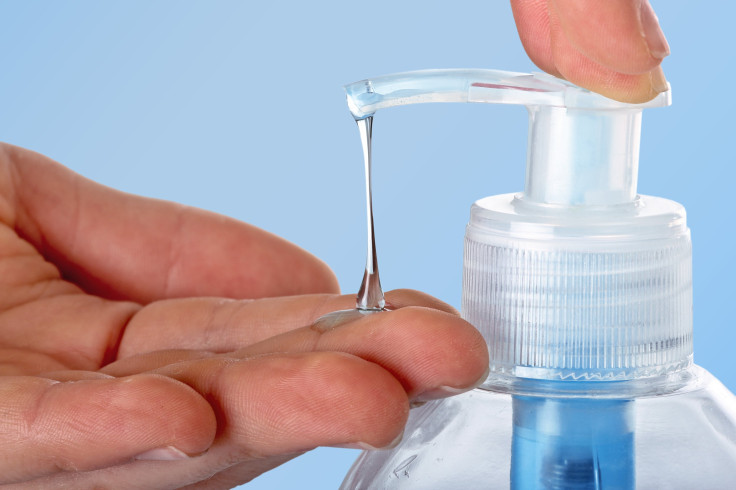The Downsides Of Hand Sanitizer: Antimicrobial Additives Can Harm Your Health And The Environment

Hand sanitizer, soap, and toothpaste are inherently meant to be clean and to remove bacteria, but new scientific research shows that these common household products may be more harmful to the environment — and to your health — than previously thought.
Antibacterial soaps contain additives that plain soap doesn’t. Some of the antibacterial additives placed in these products include the chemicals triclocarban (TCC) and triclosan (TCS) — both of which are used in soap and toothpaste. In research conducted by Rolf Halden, director of the Center for Environmental Security, it’s become clear that TCC and TCS are dangerous because of their inability to degrade easily and the fact that they make up 60 percent of the mass of all drugs found in sewage sludge, or wastewater treatment plant sludge. These chemicals also are contaminants in lakes and rivers that have adverse effects on aquatic animals.
“This multi-billion dollar market has saturated supermarkets worldwide and vastly accelerated the consumption of antimicrobial products,” Halden wrote. “Today, TCC and more so TCS can be found in soaps, detergents, clothing, carpets, paints, plastics, toys, school supplies, and even in pacifiers, with over 2,000 antimicrobial products available.”
When it comes to human health, TCC and TCS have been found to promote drug-resistant infections as well as disrupting hormone levels in adolescents. And research has also shown that TCS may play a role in causing bacteria to develop resistance to antibiotics.
Recently, the Food and Drug Administration (FDA) has revisited this issue, writing on its website that these antibacterial products don’t necessarily prevent you from getting sick or spreading bacteria to others. According to Colleen Rogers, a leading microbiologist at the FDA, there isn’t much evidence showing that over-the-counter antibacterial soaps are “any more effective at preventing illness than washing with plan soap and water.”
The FDA has ruled that soap manufacturers have one year to show that their products are safe, or else they must take the toxic additives out. “New data suggest that the risks associated with long-term, daily use of antibacterial soaps may outweigh the benefits,” Rogers said.
“It’s a big deal that the FDA is taking this on,” Halden said in a press release. “The FDA’s move is a prudent and important step toward preserving the efficacy of clinically important antibiotics, preventing unnecessary exposure of the general population to endocrine disrupting and potentially harmful chemicals, and throttling back the increasing release and accumulation of antimicrobials in the environment.”
Halden believes that as the world progresses, hopefully a “green” substitute will replace current antimicrobials, something that can be effective against pathogens but are also not toxic or harmful to human health or the environment. “Sustainability considerations already are informing the design of green pharmaceuticals and adopting this approach for antimicrobials promises to yield important benefits to people and the planet,” Halden concluded.



























